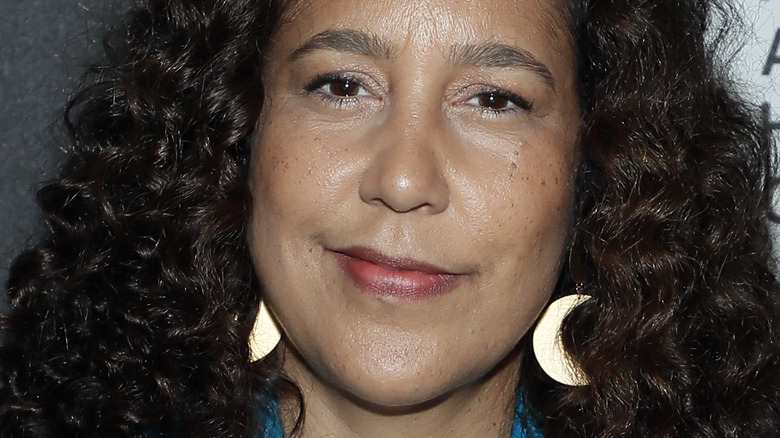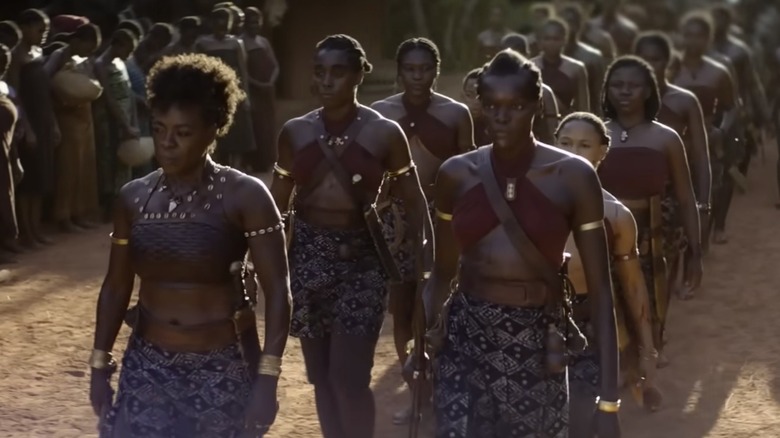Director Gina Prince-Bythewood Has The Perfect Response To The Woman King Backlash
Deadline reports that the Tri-Star/eOne film "The Woman King" is doing better than expected, thanks to an $18 million opening at the box office and good returns from services like CinemaScore and real-time polling company PostTrak. However, it remains controversial on Twitter, where the Sony-distributed film that's being produced and led by Viola Davis has received some backlash for what some people believe is an inaccurate representation of the slave trade.
On Twitter, some members of the Black community are using the hashtag #BoycottWomanKing and bringing attention to the fact that, in their view, the movie does not accurately portray the history of the Kingdom of Dahomey in West Africa. According to its detractors, the Dahomey and the female military members of the Agodjie were not brave liberators. Instead, critics (like the National Review) note, the Dahomey were guilty of selling Black men and women to the Americas. And historians do agree (via Smithsonian Magazine) that the Dahomey were involved in the Atlantic slave trade in the 1800s, when this movie was set.
The backlash apparently began in response to the preview trailer, which does not show the somewhat checkered history of Dahomey. Instead, it mostly features the woman warriors training and fighting against white colonizers. However, director Gina Prince-Bythewood gave the perfect response to her detractors.
Gina Prince-Bythewood says that there's no use fighting people on Twitter
Prince-Bythewood told IndieWire, "I learned early on you cannot win an argument on Twitter. And I know all of that is going to go away once they see the film. There's an assumption we're not dealing with it and we are dealing with it. So I have to live in that confidence. They're going to see the film and they're going to see it."
In addition, producer Cathy Schulman said (via IndieWire) that she wished the conversations would happen around content in the film rather than the preview material. She also pointed out that the situation is more nuanced than portrayed. "I think that we did not hesitate to investigate those areas," she said. "The fact is that slavery is driven by material gain. It offered up people on this continent an option to make money that should not have been offered up or forced upon them. And, once it was, it created all sorts of internal conflict, and we don't hesitate in visiting that within the film."
The film's crew is supported by a certain segment of Twitter users, who have said the current attack feels disingenuous. However, with the film now out in theaters, viewers are now seeing for themselves whether or not the backlash is warranted — and so far, reaction has been mixed. Some new fans are coming to its defense. Others, like historian Ana Lucia Araujo writing for Slate, said that while the movie is a vision of female black empowerment, it softens the truth, misleads audiences who don't know a lot about African history, and sells short the descendants of enslaved Africans.
Given this, it appears that the response to "The Woman King" may turn out to be as complex as its portrayal of slavery in the film — and it remains to be seen how audiences will react once opening weekend is over.

